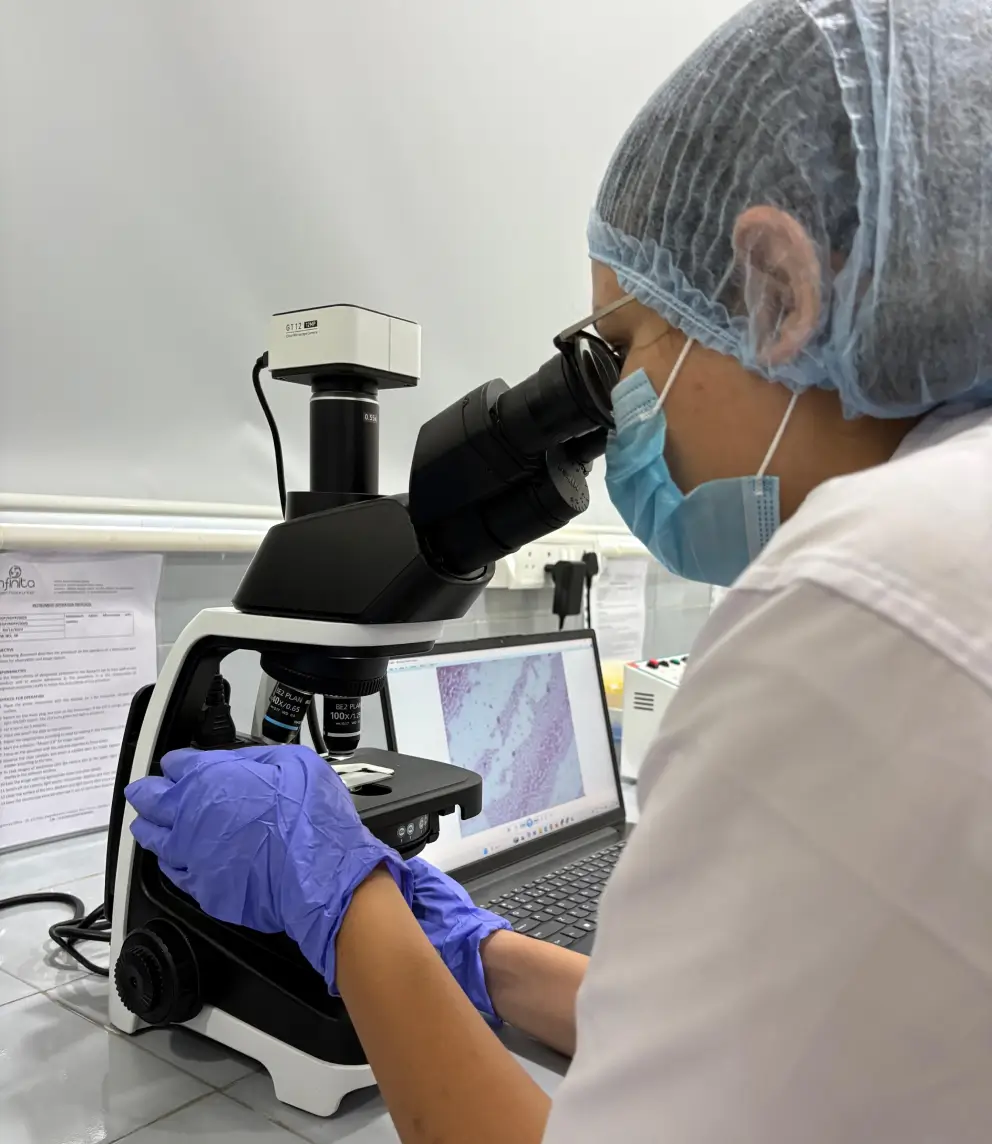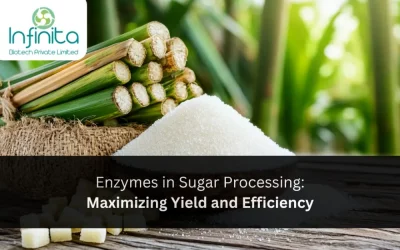Importance Of Digestive Enzymes In Protein Powder
Digestive enzymes are the stalwarts of your digestive system. They get to work as soon as you take your first bite, and they are involved throughout the digestive process, breaking down the foods you eat into smaller, more absorbable components that your body needs to use, including vital nutrients and beneficial compounds. An enzyme is a protein type that has a very specific purpose: to convert one molecule type in one’s body into another. When it gets down to enzymes in digestion, this involves breaking down the macronutrients like proteins, carbohydrates, and fats in your diet into smaller molecules for immediate use by your body. The salivary glands and the secretory cells in the stomach, pancreas, and small intestine can produce several digestive enzymes in the body. Yet we are supposed to eat whole foods that are rich in digestive enzymes. Many holes, raw foods contain enzymes in their natural, unadulterated state which promote healthy digestion.
What Are Digestive Enzymes?
The primary production of digestive enzymes is done in the pancreas and liver and released to help digest food coming from the stomach. Different types of digestive enzymes are critical for the breakdown and absorption of nutrients. Enzymes in digestion help in increasing food absorption rates of nutrients and relief from chronic gastrointestinal discomforts, including problems like bloating, cramps, and diarrhoea.
Why Do We Need Enzymes?
Our body can produce enough enzymes for digestion, but the production of enzymes declines as we age. The enzymes that our body has become less efficient, making it harder for our body to maintain normal digestive function without extra digestive enzymes. Packaged foods contain little to no enzymes, so many of us do not get the additional digestive enzyme aid that our diet requires.
- Stress endangers our digestive system. Taking digestive enzymes would hold it at its best.
- GMOs and processed foods put more significant pressure on the digestive tract. Taking enzymes provide the support required for any meal to ensure optimum digestion.
- If your digestive system is impaired, your cells do not get what they need, and this can lead to illness and disease.
- Digestive enzymes and probiotics sustain the digestive tract for optimum function.
- But for digesting certain nutritious foods, you do not benefit from eating well. All of the world’s healthy nutrition will do you no good unless you properly digest it and help digestive enzyme digestion is a perfect way to promote optimal health.
One should consider the fact that during digestion, the food goes through a lot of environmental change, i.e. neutral, acidic, and alkaline. Thus, protein digestion involves a breakdown in all three environments. So some enzyme formulations can include up to three protease forms that are successful at different pH ranges, including one that can sustain its activity in a highly acidic environment.
Enzymes In Bodybuilding
Whey protein is a fast-acting source of protein, and the body quickly absorbs it. However, the bodybuilder is not able to use the whey to the fullest extent in the deficiency like genetic factors, stress, and inadequate diet of digestive enzymes. Factors like heat, suboptimal diet, and lack of digestive enzymes hamper whey protein absorption. But it becomes a problem when they do not know how much of the protein is absorbed. Many bodybuilders consume massive quantities of protein to make their muscle development supersede. For muscle building enthusiasts, the general rule of protein intake is 1 g of protein per pound of body weight every day. Still, if the body is unable to consume protein due to a lack of digestive enzymes, it remains hungry for protein, although that you have consumed foods rich in proteins.
Let us see how the protein digestion works first. It is more important for you to consume protein than to eat it as protein is hard to digest. Digestion of proteins starts at the stomach and ends in the intestines. Digestive enzymes are secreted by the pancreas gland to break down protein into quickly absorbable amino acids so that that muscle cells can use them well.
Importance Of Digestive Enzymes In Protein Powder
In bodybuilding, the advantages of digestive enzymes are enormous because quality nutrition is essential to building the muscles for a bodybuilder, and digestive enzymes ensure just that. It is believed that more ingredients make the supplement useful, right? Even in the case of supplements with enzymes. While a complete formula can contain a variety of different enzymes for digesting the variety of other food components we consume, it is not the sheer number of ingredients that make it successful; it is the variety of the enzymes and their levels of activity.
Enzymes in digestion include proteases, lactase, lipase, cellulase, lactase, etc. Without these enzymes, the digestive system will fail to transform any food into smaller parts that will be used to produce energy, either by ketones or glucose; the liver and the pancreas go hand in hand alongside the stomach to get the job done. This means that every enzyme’s adequate levels are a must to get the most out of the food you eat. Different enzymes break down various macronutrients. The body produces a large number of other individual enzymes, each of which is most commonly named after the molecule it breaks down, plus an “-ase” at the end. Here are some of the “ases”-
- Proteases: Such enzymes help break down protein molecules into basic amino acids (amino acid chains) and peptides. These peptides and amino acids are used by your body as building blocks for the different compounds that it produces to keep you safe and working.
- Lipases: Lipids stand for fat molecules, and as the name suggests, these enzymes help break down fat molecules into fatty acid and glycerol chains. Your body uses the fatty acids as building blocks for other compounds it needs, and the energy storage glycerol as well.
- Amylases: These enzymes help break down complex clusters of carbohydrates into sugars such as maltose and sucrose.
- Maltase: After the complex cluster of carbohydrates is broken, it comes to maltase to do the next job. Maltase to break down maltose or sucrose to break down sucrose. The result is then glucose, which can be used directly by your body for energy.
The bunch of these enzymes ensures superior absorption of proteins and other nutrients in the body to muscular power gains. These are some steps about protein digestion:
- When we intake food, the digestion of proteins present in it begins in the stomach and then leads to the small intestine.
- The digestive enzymes in the small intestine; further attack protein to break it down into amino acids to promote its absorption.
- It is during this process that the presence of the externally taken extra digestive enzyme will help the body increase the pace of protein breakdown and absorption, and take it to a level above 8-g per hour.
It would be in your best interest to keep these points in mind to aid you in protein digestion:
- It would help if you stopped getting water with your meals to increase the protein digestion.
- Often, if you have an antacid, do not drink milk, since an antacid neutralises the acid content in your stomach and makes it difficult to digest protein.
- As whey protein’s transit period in the intestines is only a 90-minute time window, known as hydrolysis, it requires all the help from the body’s digestive enzymes, as well as from external sources, to digest and optimize protein absorption quickly.
Also, the stomach can have difficulty digesting large whey protein peptides, which may result in a slew of unpleasant symptoms. Failure to break down these peptides can cause bloating, excess gas, nausea, and cramps in the stomach. Athletes often attribute lactose intolerance to these symptoms, but a high-quality whey isolate contains minimal or no lactose due to the way it is produced.
However, to avoid such symptoms, when selecting your supplements, you can look for a protein with protease enzymes that are known to do their job and improve breakdown and absorption of the protein.
So to say, choose a whey protein that contains the digestive enzyme, so you bring out the benefits of the full amount of protein you consume.

 Summarize this Article with AI
Summarize this Article with AI






